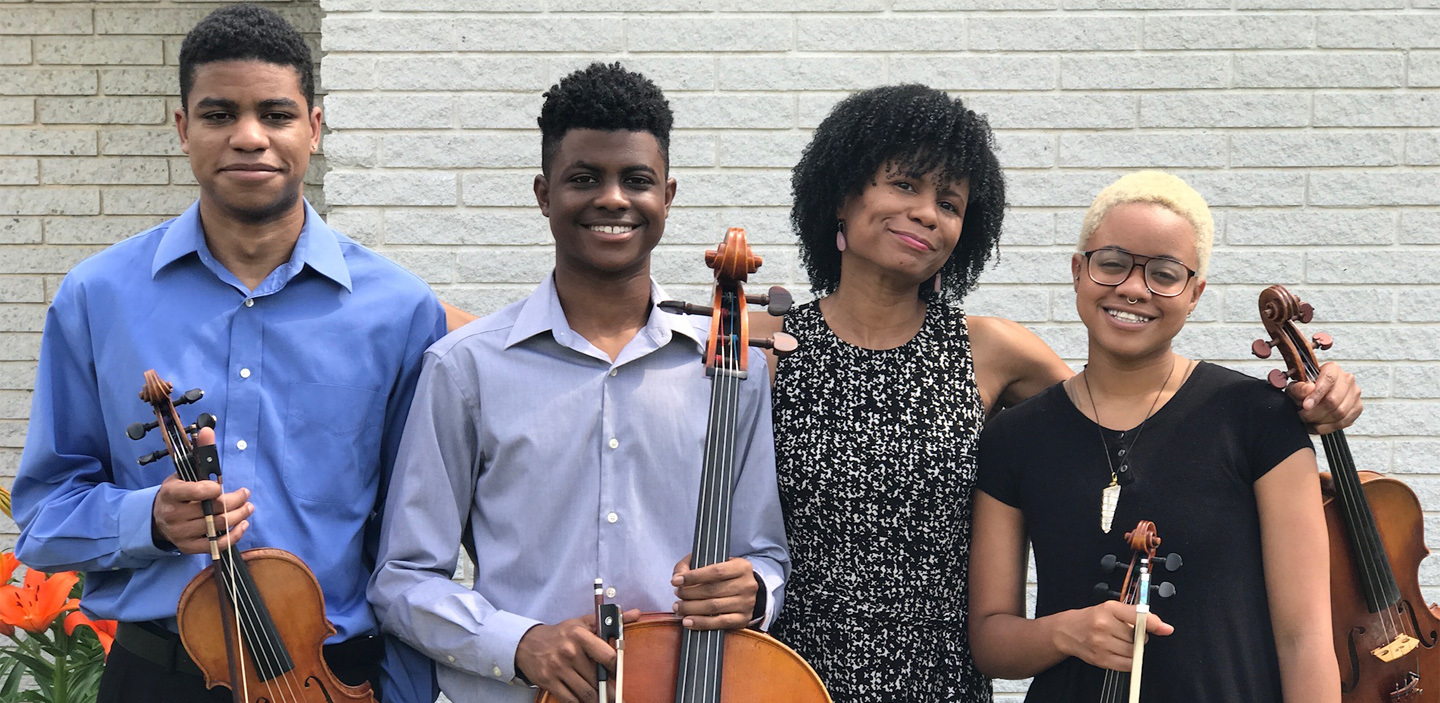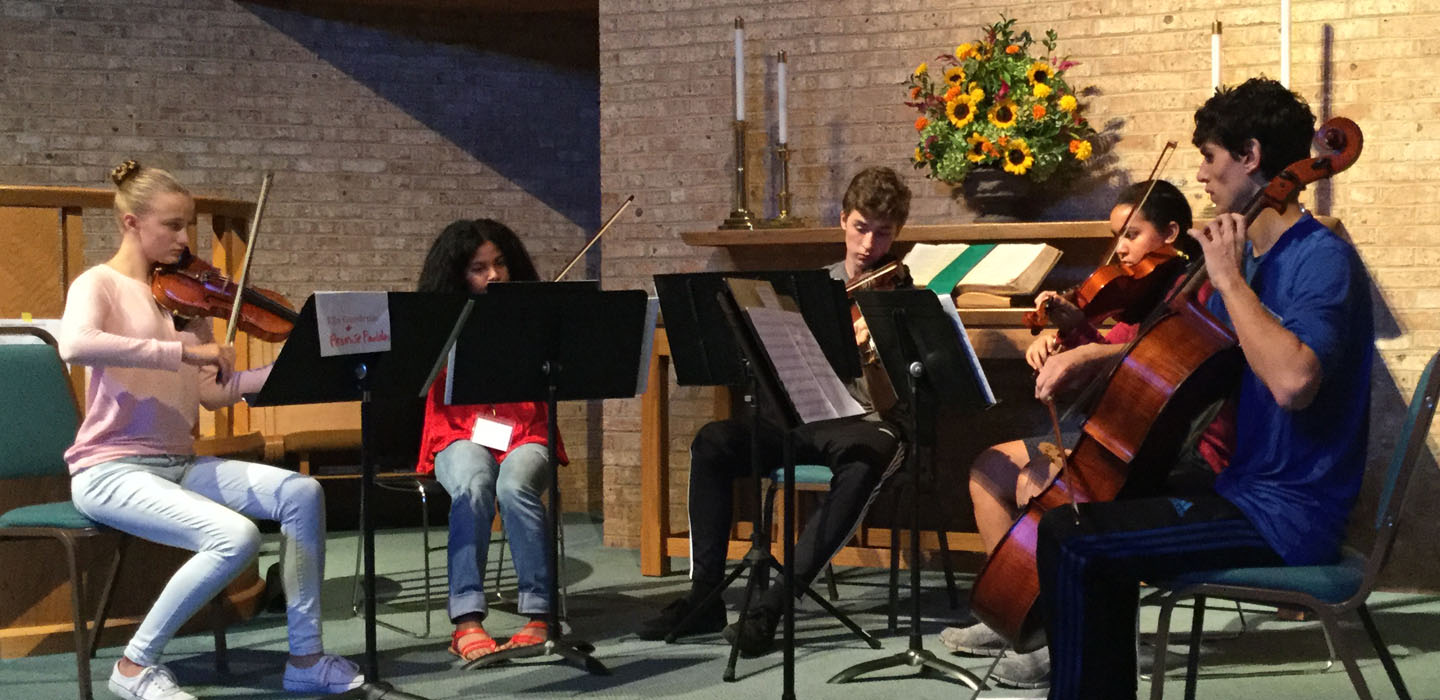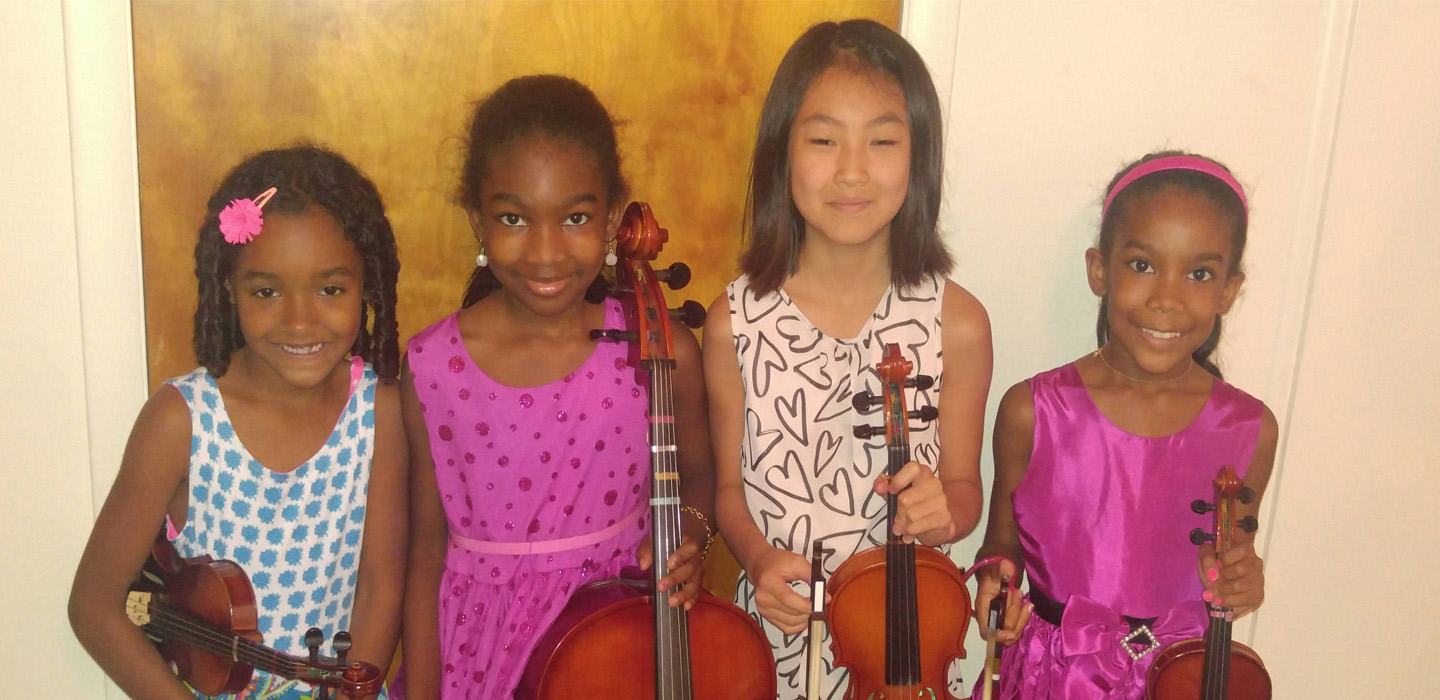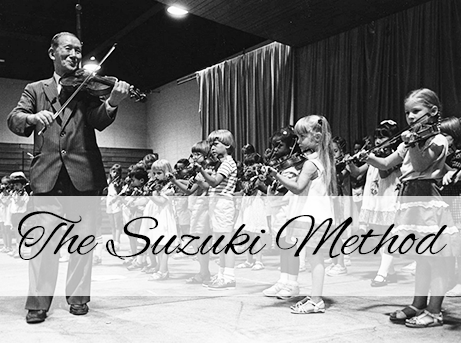The Suzuki Method
Musical ability is not an inborn talent but an ability which can be developed.
Any child who is properly trained can develop musical ability, just as all children develop the ability to
speak their mother tongue.
The potential of every child is unlimited.— Shinichi Suzuki
More than forty years ago, Suzuki realized the implications of the fact that children the world over learn to speak their native language with ease. He began to apply the basic principles of language acquisition to the learning of music, and called his method the mother-tongue approach. The ideas of parent responsibility, loving encouragement, constant repetition, etc., are some of the special features of the Suzuki approach. The basic principles are as follows:
Every Child Can Learn
Everyone believes that all children have the ability to learn language and that all children should be taught to speak, read, and write. When given the proper environment, every child can learn to create music.
Parent Involvement
As when a child learns to talk, parents are involved in the musical learning of their child. The parents’ role in their child’s musical education is vital. One parent often learns to play before the child, so that s/he understands what the child is expected to do. Suzuki spoke of a triangle between the student, teacher, and parent, in which each member must contribute equally. Being part of a Suzuki program requires a commitment on the part of the parents. As most of a child’s learning takes place at home, parents serve as the home teacher. The parents’ responsibilities include attending every lesson with their child, guiding the child’s practice, creating a supportive learning environment at home, providing daily opportunities to listen to the Suzuki CD, and enriching the child’s musical environment by attending concerts together.
Early Beginning
The early years are crucial for developing mental processes and muscle coordination. Children are immersed in language from the moment they are born. Listening to music should begin at birth; formal training may begin at age three or four, but it is never too late to begin. Being exposed to music from a young age greatly facilitates learning.
Listening
Children learn words after hearing them spoken hundreds of times by others. Listening to music every day is important, especially listening to pieces in the Suzuki repertoire so the child knows them immediately.
Repetition and Review
Constant repetition is essential in learning to play an instrument. Children do not learn a word or piece of music and then discard it. They add it to their vocabulary or repertoire, gradually using it in new and more sophisticated ways.
Suzuki students constantly review the repertoire they have learned. This both reinforces technical skills and memory and provides countless opportunities to experiment with musical expression. Most importantly, through continued review, students become accustomed to the feeling of playing with ease.
Encouragement
As with language, the child’s effort to learn an instrument should be met with sincere praise and encouragement. Parents never scold a child for mispronouncing a new word; instead, the child is encouraged to repeat the word over and over until it is mastered. An equally positive environment is necessary for a child to learn music. Each child learns at his/her own rate, building on small steps so that each one can be mastered. Children are also encouraged to support each other’s efforts, fostering an attitude of generosity and cooperation.
Learning with Other Children
In addition to receiving private lessons, Suzuki students participate in group classes where they learn from an are motivated by each other. Musical performance is rarely an individual activity; most often, music is performed with others, whether as a string quartet, orchestra, or as a solo with piano accompaniment. One of the greatest benefits of group class is that it develops the skills needed to perform music as part of an ensemble. Group classes build on concepts learned in private lessons and are an excellent source of motivation. They give children the opportunity to share music with each other, make friends, and learn from their peers. Group classes also offer the valuable experience of performing in front of a supportive audience, leading to confidence and comfort with performing.
Graded Repertoire
Children do not practice exercises to learn to talk, but use language for its natural purpose of communication and self-expression. Pieces in the Suzuki repertoire are designed to present technical problems to be learned in the context of the music rather than through dry technical exercises.
Delayed Reading
There is a common misconception that Suzuki-trained students do not learn to read music. This is not so. Just as children learn to read only after they have achieved the ability to speak with ease, Suzuki students begin to read music only after developing a solid technical foundation. It is necessary to have this foundation before beginning to read music so that the student can concentrate more fully on learning to play the instrument.
Press “PLAY” to watch the Elliott Violin Studio Pre-Concert at the Ferguson Center for the Arts.



